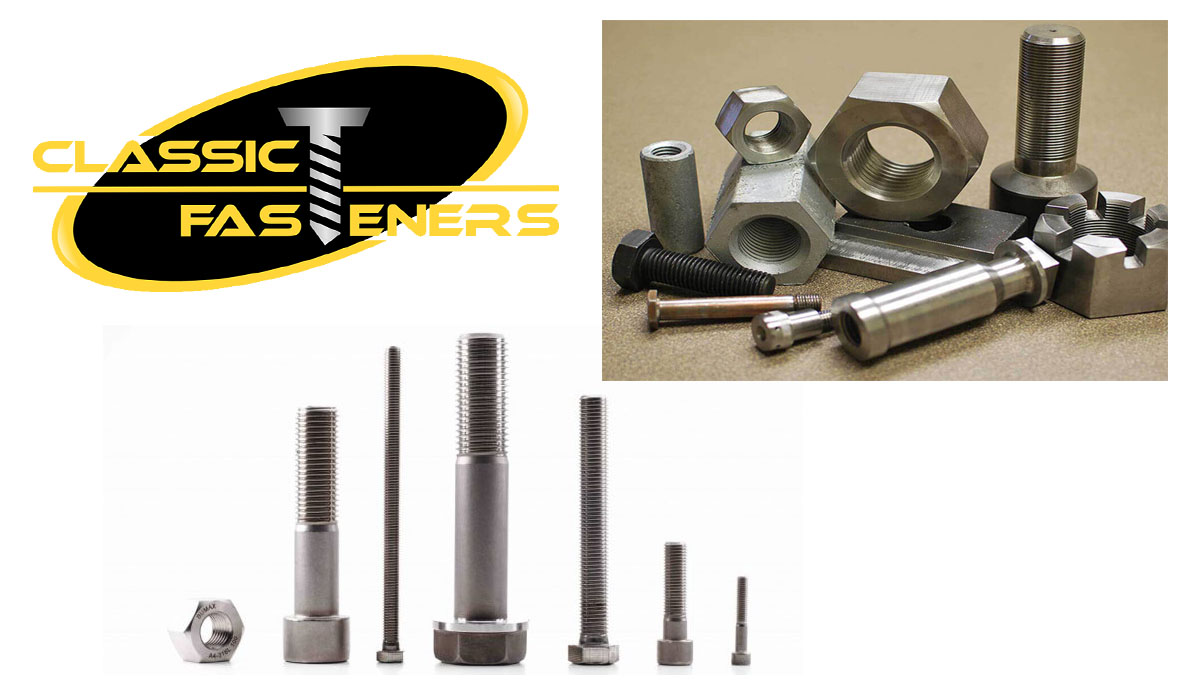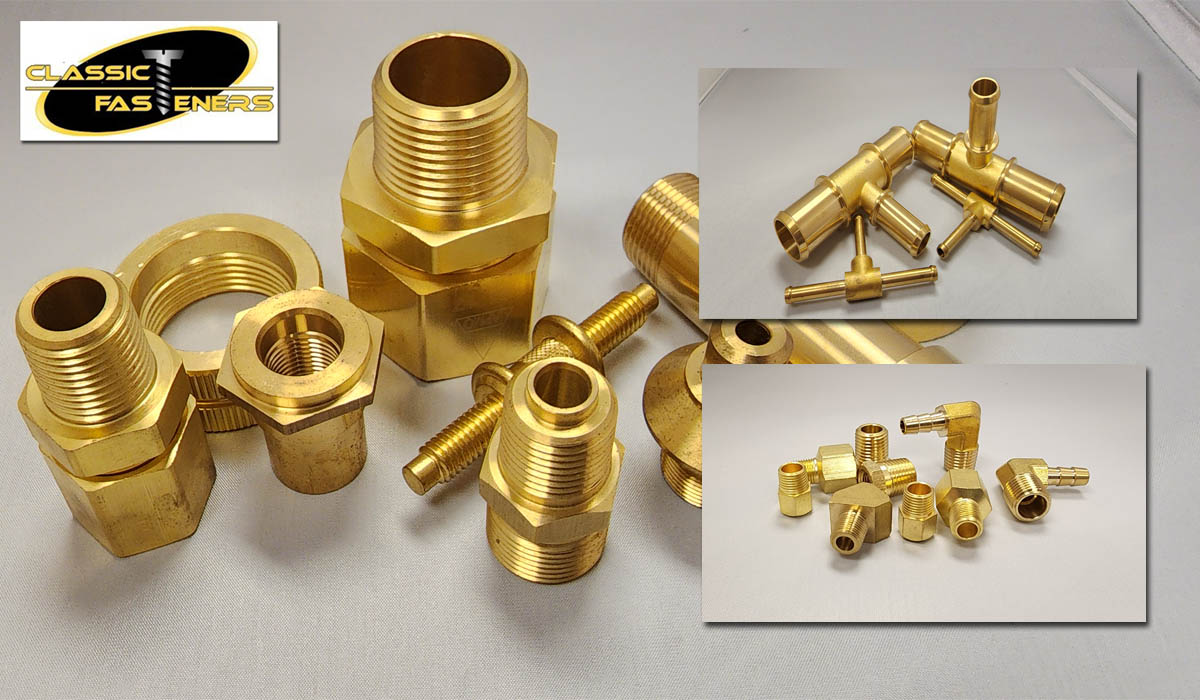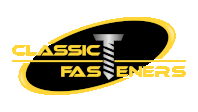
Bolts And Nuts 101: A Beginner’s Guide To Sizes, Types, And Standards
How To Measure, Classify, And Standardize Bolts And Nuts For The First Time
Navigating the world of Bolts and Nuts can be a complex task for those new to the industry. Understanding the various types, sizes, and standards is essential for selecting the correct fasteners for any project. At Classic Fasteners, LLC, we are committed to providing the highest quality fasteners to meet the diverse needs of our clients. Whether you’re a seasoned professional or just starting, this guide will help you understand the basics of bolts and nuts. Feel free to explore our products or contact us at (630) 292-3174.
Understanding The Basics Of Bolts And Nuts
Bolts and Nuts are fundamental components in various applications, from construction to automotive. Bolts are threaded fasteners that require a matching nut to secure them, while nuts are used to fasten bolts. Together, they form a strong connection that can withstand significant forces. At Classic Fasteners, LLC, we offer a wide range of these essential components, each designed to meet specific requirements.
Exploring Different Bolt Types Understanding
Bolt types are crucial for selecting the suitable fastener for your project. Here’s a closer look at some common bolt types:
- Hex Bolts: Known for their six-sided heads, they are used in general-purpose applications.
- Flange Bolts: Incorporate a flange that acts as a washer, providing more surface area.
- Structural Bolts: Designed for heavy-duty construction and structural applications.
Diving Into Nut Types
Nut types vary widely, and understanding the differences is critical to successful fastening:
- Hex Nuts: Commonly used with hex bolts, they provide a strong connection.
- Lock Nuts: Include a locking mechanism to prevent loosening.
- Wing Nuts: Designed for hand tightening, often used in temporary structures.

A Comprehensive Guide To Bolt Sizes
Various factors, including diameter, length, and thread pitch, determine bolt sizes. Selecting the right size ensures optimal performance and longevity in your application. Our products page offers a wide selection to meet your specific needs.
Understanding Nut Sizes
Nut sizes must correspond with bolt sizes for a secure fit. The nut’s size, thread, and shape should match the bolt’s specifications. Our Classic Fasteners, LLC team is here to help you find the perfect solution for your needs.
Standards In Bolts And Nuts
Adhering to standards for bolts and nuts ensures quality, compatibility, and safety. Standards like ISO, ANSI, and ASTM govern the fasteners’ materials, dimensions, and tolerances. Trusting a certified distributor like us ensures you receive products that meet these standards.
Conclusion
The world of bolts and nuts is vast and complex, but understanding the basics can lead to successful projects and satisfied clients. At Classic Fasteners, LLC, we’re more than just a supplier; we’re a partner in your success. Explore our products, learn why you should choose us, or contact us today at (630) 292-3174. Your success is our success, and we’re here to ensure that you find the perfect fasteners for your needs.
We Are Fasteners Manufacturers For:
We've Selected These Articles For You:
Frequently Asked Questions
Nuts and bolts are fundamental components in the construction and manufacturing industries. They are types of fasteners used to join two or more objects together. A bolt is a threaded fastener with an external male thread, while a nut is a type of fastener with a threaded hole that typically goes with a mating bolt to fasten parts together.
There are several types of bolts & nuts, each designed for specific applications. Some common types include hex bolts, carriage bolts, lag bolts, and U-bolts. Similarly, nuts come in various styles, such as hex, lock, wing, and flange nuts. Each type has unique features that make it suitable for specific applications.
The diameter, thread pitch, and length of a bolt or nut determine its size. Diameter refers to the thickness of the bolt or nut. Thread pitch is the distance between threads, and length is the measurement from the head’s base to the bolt’s end. Choosing the right size for your application ensures a secure and tight fit.
Stainless steel fasteners come in various grades, including 18-8, 304, and 316 stainless steel. Each phase offers different levels of corrosion resistance, strength, and other properties. The grade choice depends on the environment in which the fastener will be used.
While bolts and screws are similar, they are used differently. Bolts are typically used to assemble parts with pre-drilled holes and are fastened with a nut. Screws are used in parts containing a threaded hole and are secured by turning the screw’s head.
Choosing the correct type of bolt or nut depends on the specific requirements of your project. Consider factors such as the material you’re working with, the load the fastener needs to bear, and the environmental conditions it will be exposed to. When in doubt, consult with a fastener expert or engineer.
Not all nuts and bolts are interchangeable. The nut must match the diameter and thread pitch of the bolt. Using mismatched nuts and bolts can lead to the failure of the fastener and potential damage to the materials being fastened.
A washer serves several purposes in a bolted joint. It distributes the load of the nut or bolt evenly over the part being secured, reducing the chance of damage. Washers also help prevent loosening due to vibration by providing a smooth surface for the nut or bolt to turn against.
Bolts & nuts can be made from various materials, including steel, stainless steel, brass, and plastic. The choice of material depends on the application and the environmental conditions to which the fastener will be exposed.
Bolts & nuts can be purchased from various sources, including local hardware stores, home improvement centers, and online retailers. Consider a dedicated fastener distributor or manufacturer for specialized or bulk orders.
